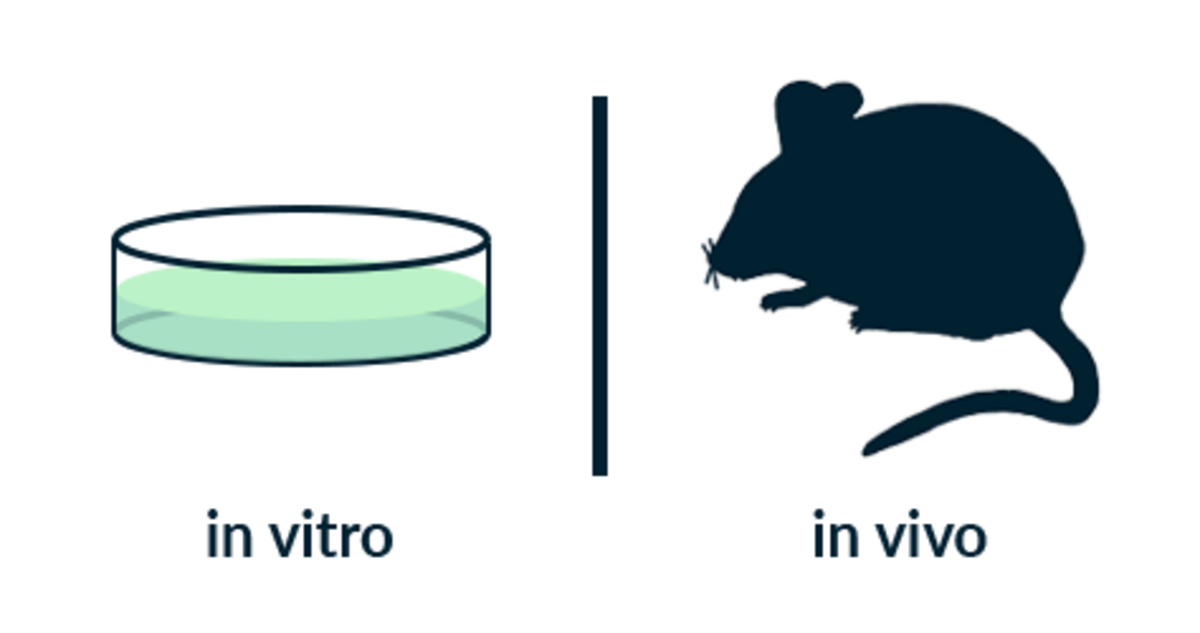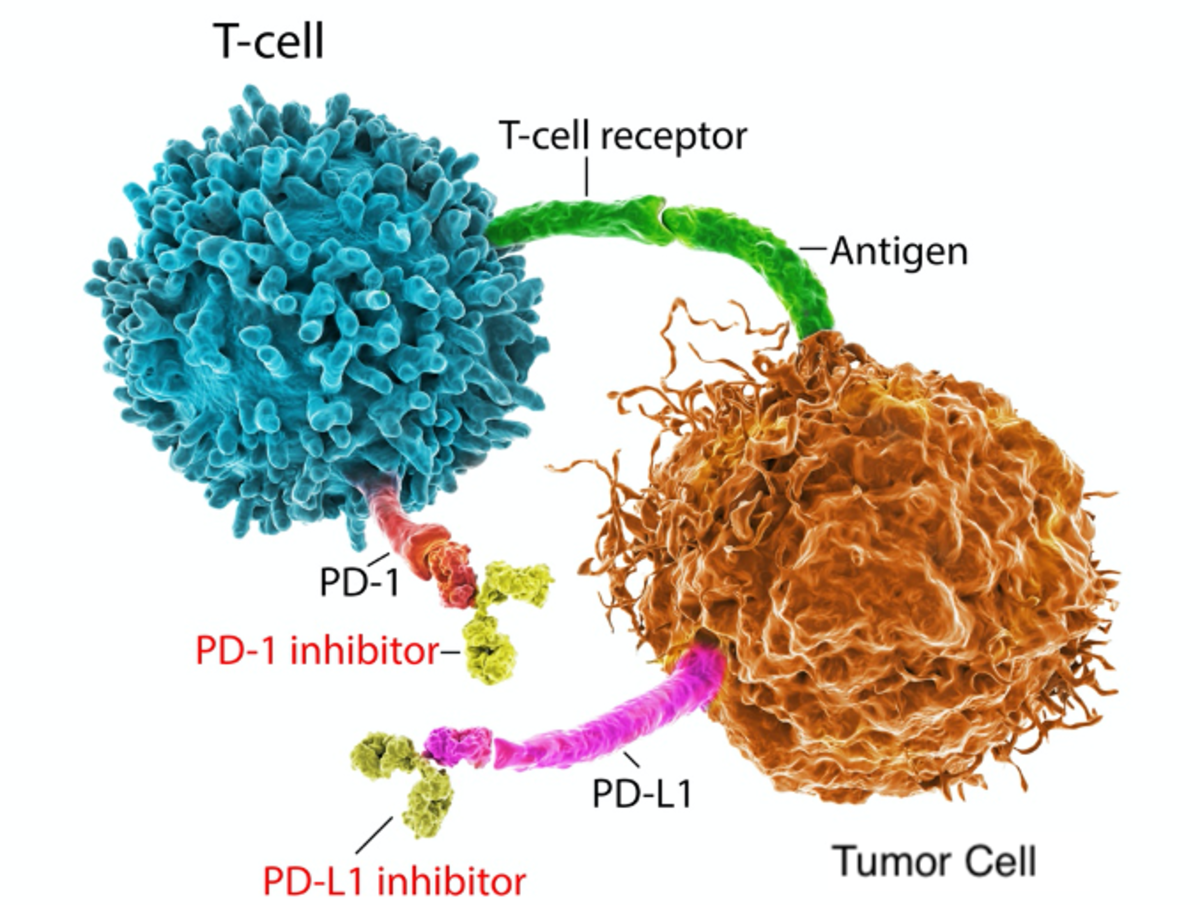Antibodies that will be used for in vivo studies must exhibit certain properties to both safeguard the organism in question and ensure accurate results. With antibodies increasingly being used as therapeutics, new research tools are essential to reveal their underlying mechanisms of action and develop more effective treatments for a broad array of medical conditions.
What is the difference between in vitro and in vivo research?
In vitro experiments use cells, tissues, or other components isolated from a living organism for analysis via established techniques such as Western blot, immunohistochemistry, or cell-based screening. While relatively quick, easy, and inexpensive to perform, a disadvantage of these methods is that they are not always physiologically relevant. In vivo experiments are instead carried out within living organisms, such as laboratory mice and rats, and better represent the biological effects of a particular treatment. The greater complexity of in vivo studies means they are inevitably of longer duration and have higher associated costs.
What are some key properties of in vivo antibodies?
While both in vitro and in vivo antibodies should come with validation data showing them to bind specifically and with high affinity to their intended target, the latter must also feature several other important properties. Critically, in vivo antibodies should have exceptional purity and be preservative, stabilizer, and carrier protein-free. In addition, ultra-low endotoxin levels are essential to prevent unwanted immune responses that could cause adverse effects or compromise experimental results. Other key properties of in vivo antibodies include being free of pathogens, demonstrating low protein aggregation and, where possible, being supplied with advanced binding data and matching isotype controls. It is worth noting that in vivo antibodies are distinct from therapeutic antibodies; in vivo antibodies are intended for research use only whereas therapeutic (GMP grade) antibodies are used for clinical applications and are subject to their own rigorous controls for development and manufacturing.
How are antibodies used for in vivo studies?
In vivo antibody use spans many different research areas and applications. Within the realm of immunotherapy and cancer, species-switching an anti-mouse PD1 antibody (RMP1-14) from rat IgG2a to the murine equivalent has been shown to improve potency and yield a more consistent treatment response in a mouse model of liver cancer. In this same field, administering anti-PD1 antibodies to CD8-deficient mice has helped uncover a role for the innate immune system in modulating the responses of glioblastoma patients to anti-PD1 therapy, which have historically been inconsistent.
In vivo antibodies have also been used for studies aimed at protecting against infection with SARS-CoV-2, preventing severe allergic reactions to food, and improving the efficacy of allergen-specific immunotherapy (AIT), as well as for countless other purposes.
Supporting your research with high-quality in vivo antibodies
At LubioScience, we offer a growing selection of antibodies for in vivo studies. These include over 300 in vivo monoclonals from Bio X Cell that are designed to meet a broad range of needs, and VivopureX™ antibodies from Absolute Antibody, as used in the species-switching study described above .
In vivo antibodies from Bio X Cell
Bio X Cell offers several different monoclonal antibody product families for in vivo research. These include RecombiMAb™ antibodies, which are recombinant versions of existing clones formulated for in vivo use; the InVivoMab™ collection, which is guaranteed > 95% pure, with low endotoxin levels (< 2 EU/mg), and is azide and carrier protein free; and InVivoPlus™ antibodies, which mirror the InVivoMab™ products but benefit from additional QC measures such as ultra-low endotoxin (< 1 EU/mg), ≤ 5% aggregates, and testing for murine pathogens. These are complemented by InVivoSIM™ antibodies, which are research grade biosimilar versions of therapeutic antibody products.
More about antibodies by Bio X Cell
VivopureX™ antibodies from Absolute Antibody
VivopureX™ antibodies are ideal for performing in vivo research in mouse models. Based on popular antibody clones, many originally sourced from rats or hamsters, the VivopureX™ collection comprises recombinant versions of existing products which Absolute Antibody has engineered into mouse-anti-mouse antibodies to improve research results. Specifically, by matching the antibody species to the host organism, VivopureX™ reduces unwanted immunogenicity. And, with a range of isotypes and subtypes available to choose from, the effector function of VivopureX™ antibodies can be tailored to a particular model system.
Suppliers
LubioScience represents some of the most trusted brands in research and works closely with partners such as Absolute Antibody and Bio X Cell to offer a comprehensive selection of in vivo antibodies. Contact us today to learn how we can support your project.
Bio X Cell - Antibodies for in vivo research

Bio X Cell is a specialist for high quality monoclonal antibodies for in vivo research. Antibodies have low endotoxin levels and no preservers.
Shop for Bio X Cell products
Absolute Antibody - Recombinant engineered antibodies

Absolute Antibody is an expert in engineering recombinant antibodies for in vivo research. Their custom services include hybridoma sequencing, antibody engineering and expression.
Shop for Absolute Antibody products


